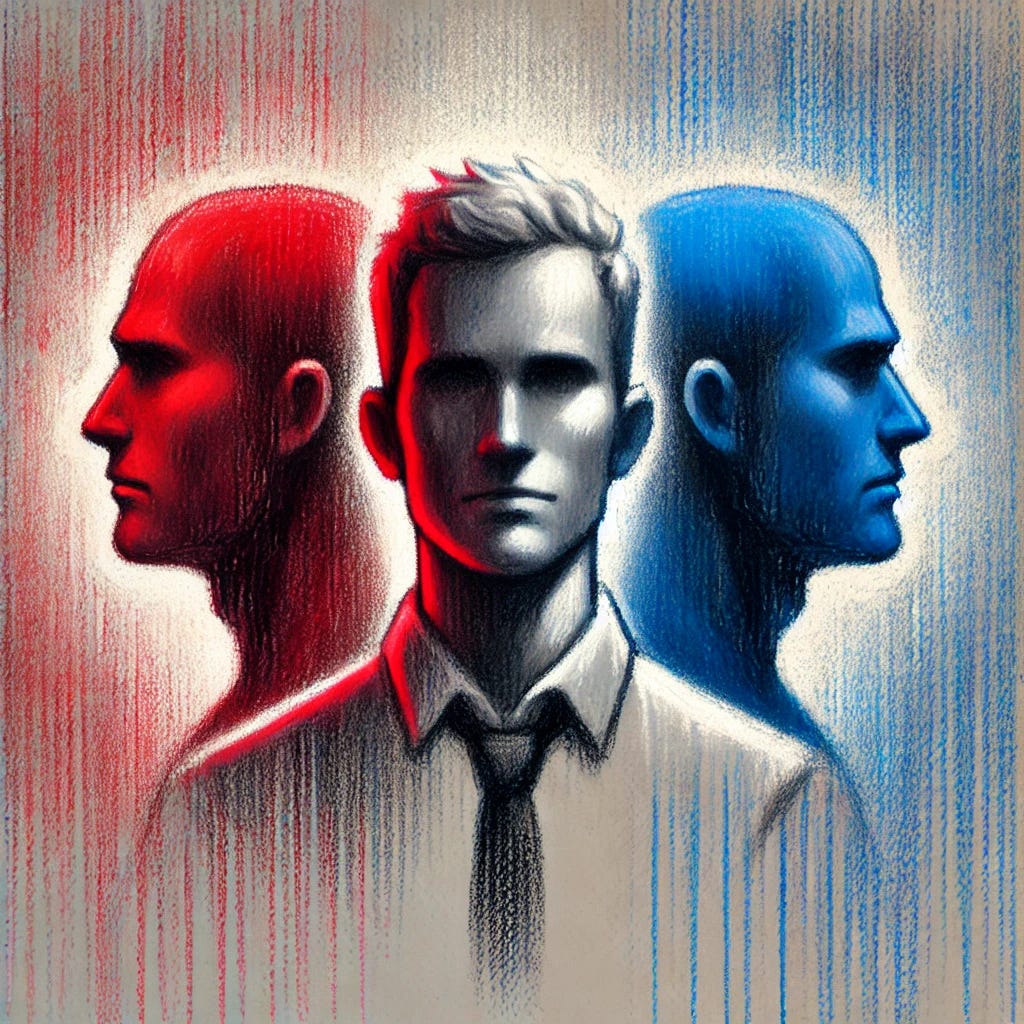NOTE: I hate that I’m talking about politics. I know I’m opening a Pandora’s box, but I’m seeing things that relate to my work and want to write about it. The world feels scary to me right now. I’m scared of what the political future holds. Many of my friends are scared as well. Some of you won’t agree simply because of different party affiliations. It’s ok to disagree with me AND my comments section is not a place for negativity. If you have something constructive to add, please do. If not, scroll on by, unfollow, or do what you need to instead of adding negative comments. Do my politics lean strongly to the left? Yes. I won’t hide that, and of course, it impacts my view of the world. In this medium, I’m not open to discussing more about why I believe the things I do. I save those conversations for those closest to me. It happens in person, where we find nuance and our common humanity. It does not happen online or on social media.
Ok, we are all on the same page now. Continue reading if you choose.
Politicizing Masculinity
There’s a fascinating — and troubling — shift happening in American politics: masculinity is no longer just a cultural concept; it’s a political strategy.
A recent New York Times piece dives into how President Donald Trump continues to appeal to Republican men, not necessarily because of his policies, but because of what he represents — a figurehead for traditional masculinity. Toughness, dominance, self-sufficiency, emotional detachment — the whole “real men don’t cry” package. It's not new, but it's increasingly central to how conservatives are recruiting and rallying support, especially among young white men.
The messaging isn’t subtle. Conservative influencers, podcasters, and politicians are positioning themselves as protectors of “manhood” in a world they say has gone soft. It’s “us vs. them,” where “us” are the real men who lift weights, don’t wear nail polish, and tell it like it is — and “them” are…well, anyone who challenges that rigid idea of what a man should be.
What I find especially interesting — and unsettling — is how intentional this all is. Masculinity isn’t just being politicized; it’s being weaponized.
But here’s the thing: when we politicize masculinity this way, we box men in. We make them choose between being “a man” and being, well, human. Vulnerable. Uncertain. Kind. Gentle. Grieving. Curious. All the things that actually make connection and growth possible.
The other result is that it forces us to adopt binary ways of thinking. You are either masculine, or you aren’t. It’s either masculine or feminine. But where is the middle ground? Where is the nuance? Both can exist and where do we find balance? Focusing on one doesn’t mean the other must suffer or is less important.
I work with men who are trying to unlearn these rigid messages about their bodies, their worth, and their emotions. And it’s not easy, especially when one side of the culture tells them that any deviation from stoicism is weakness, and the other side is often silent or unsure how to engage them at all.
There’s a gap — and conservatives are filling it. Loudly.
So I keep wondering: what would it look like to have a cultural (and political) conversation about masculinity that wasn’t rooted in fear or control? One that made space for the whole person, not just the parts that fit a mold.
Because here’s the truth: when masculinity becomes a political identity, we all lose something — especially men.
The rhetoric to return to traditional ideas of masculinity and what a man “should” be leaves me feeling unsettled. I worry about how it affects woman’s autonomy over their bodies. I worry about how it will affect my trans friends. I worry about how masculinity is being celebrated with a mindset that has negative consequences for so many other folks. I am reminded of how it felt as a youngster and my fear of standing up to the bully. I felt small, weak, and helpless. That is how I feel today, seeing what is unfolding before me.
There’s no one way to be masculine. Full stop. Masculinity can look like caretaking, creativity, softness, leadership, uncertainty, friendship, vulnerability, anger, joy — and yes, strength too. It doesn’t have to come at the cost of your or someone else’s humanity. It’s not one or the other. Remember, only a Sith thinks in absolutes.
What I’m advocating for isn’t a rejection of masculinity — it’s a rejection of the idea that it needs to be defined by political talking points. We don’t need to rescue masculinity; we need to free it from political ideology.
Let’s stop telling men who they must be — and start making space for who they already are.
As I said at the beginning, the world feels scary to me right now. Many of my friends feel scared as well. I don’t have answers to offer, but what I do have is to say we are not alone. I continue to look for ways to build community. A community where others can share their fear so we don’t feel alone and find ways to support one another. Together, we’ll find a path through this.
Be kind to yourself. Be kind to others.




Fantastic piece, Aaron. Your point about how gender is nuanced is exactly the right counter message to the "either/or" garbage being peddled by so many today. Keep up the great work.
Thank you for this thoughtful take on the weaponizing of men/masculinity.